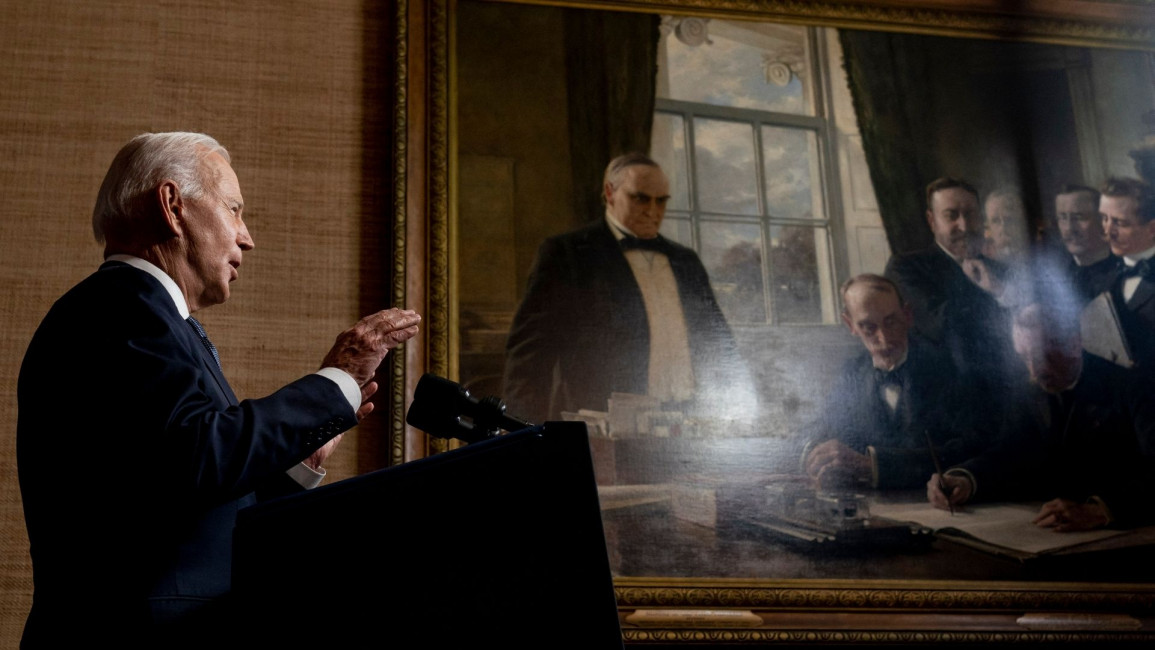HRW urges Biden to protect rights, civilians in Afghanistan after troop withdrawal
Human Rights Watch has urged the Biden administration to commit support for human rights in Afghanistan, following the US president's decision to withdraw all troops from the country by September 11.
With peace talks between the Afghan government and the Taliban at a deadlock, fears are rampant that a power vacuum left by Washington's departure could threaten key gains in the fields of human rights, in particular women's rights, education and press freedom.
"President Joe Biden's announcement of a withdrawal of US forces has raised fears that further insecurity may erode important gains in human rights that have allowed Afghans, women and girls in particular, to enjoy greater freedoms and better education and health," said Patricia Gossman, associate Asia director for HRW.
In a press release, the rights watchdog praised US support for legal reform in the war-ravaged country, something which it said enhanced women's access to justice and enabled training for hundreds of legal professionals. But it called on Washington not to cease improving the enforcement of laws protecting women and the provision of legal aid.
In light of Biden's promise to use Washington's "full diplomatic, humanitarian, economic tools" to protect gains made by Afghan women and girls over the past two decades, HRW remarked that previous White House administrations had failed to prioritise human rights in Afghanistan.
The Taliban have not offered tangible commitments to protect rights in a transitional government or after a peace agreement and still restrict the rights of women and girls to education in areas under their control, HRW said. They also regularly threaten and attack those linked to Afghan media, including prominent women journalists and broadcasters.
Violence against civilians, especially women and children has surged over the past year, according to UN statistics. Taliban control of Afghan territory is now at the highest level it has been since the US invaded to topple the group.
Twitter Post
|
Read also: Nearly 30% increase in civilian deaths in Afghanistan compared to 2020, damning report reveals
HRW said a "prompt US response" was necessary if Taliban gains threatened human rights, such as girls' access to education, including withholding financial assistance to government agencies and targeted sanctions.
At the same time, the US should maintain support to groups providing direct services to Afghans, HRW said. Donor support, which has been shrinking since 2016, has enabled access to education for millions of Afghan children. Funding for NGOs that supported "community-based education" classes had enabled children to study despite insecurity, distance, or family resistance – even in Taliban-held districts where no other schools were available.
Despite ongoing problems in rural areas and limited access to disabled people and other marginalised populations, donor support had also led to crucial improvement in access to healthcare, even in Taliban-held districts.
HRW called on the US to provide long-term support to independent news organisations to enable them to continue their role in holding Afghan officials to account, while urging the US to press the Taliban to cease all threats and attacks on the media.
"Afghans who have endured decades of human rights abuses are understandably fearful that achievements in media freedom, education, health care, and women's rights may soon be lost, and that there will be no accountability for the injustices they have endured," Gossman said.
"The US should seize this moment to express its commitment and strengthen its support for human rights in Afghanistan."
Follow us on Facebook, Twitter and Instagram to stay connected



